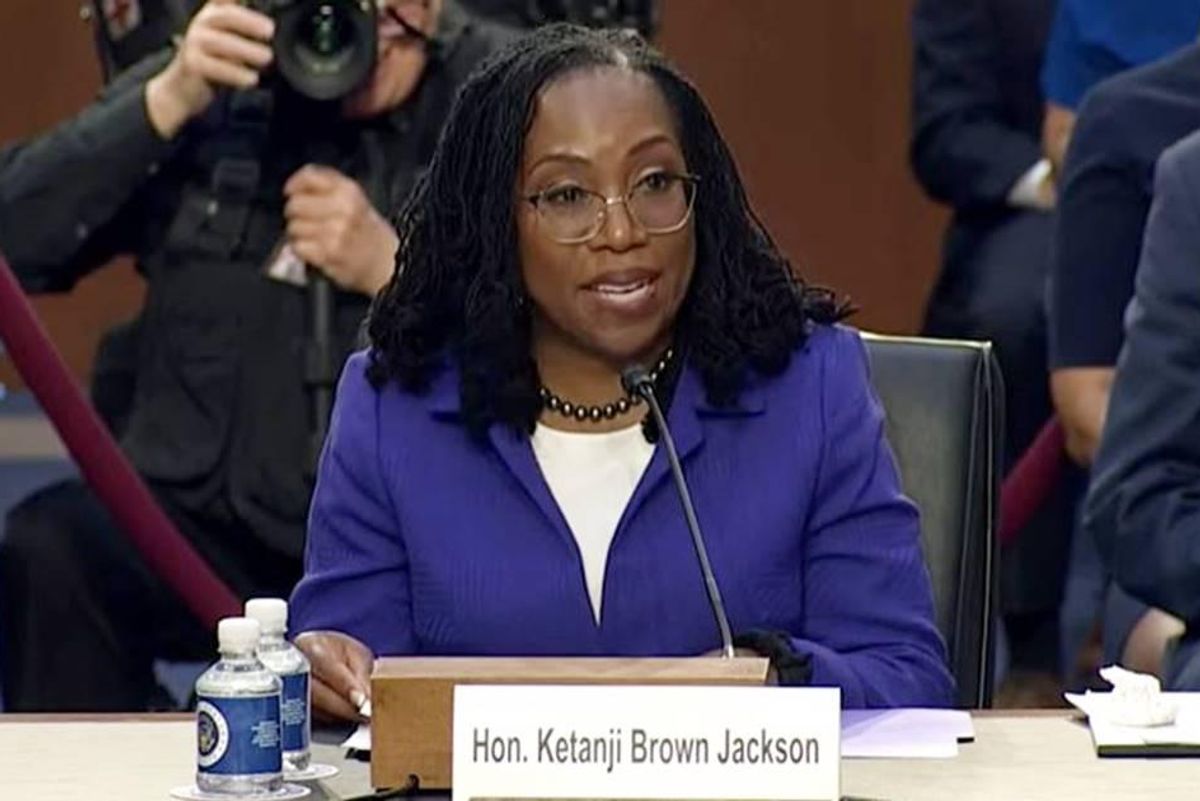Watch Supreme Court nominee Ketanji Brown Jackson give her historic opening remarks before Senate committee
Judge Ketanji Brown Jackson makes her opening statement before the Senate Judiciary Committee.
Judge Ketanji Brown Jackson, the first Black woman nominated to the U.S. Supreme Court, gave her opening statement at her confirmation hearing on Monday, March 21. She currently sits on the U.S. Court of Appeals for the D.C. Circuit and will face questions from the U.S. Senate committee's 11 Democrats and 11 Republicans over two days.
The proceedings are sure to be contentious, but Jackson’s opening statement showed that she has the calm demeanor and humility necessary to be appointed to the highest court in the land.
After thanking President Biden for the nomination, she showed the primacy that faith has in her life.
“And while I am on the subject of gratitude, I must also pause to reaffirm my thanks to God, for it is faith that sustains me at this moment,” she said. “Even prior to today, I can honestly say that my life had been blessed beyond measure.”
She then thanked her parents for giving her the hope that she can reach her potential, even in the face of prejudice.
“My parents taught me that, unlike the many barriers that they had had to face growing up, my path was clearer, such that if I worked hard and believed in myself, in America I could do anything or be anything I wanted to be," she said.
She also shared her judicial philosophy while ensuring that it’s secondary to the power of the Constitution.
“I decide cases from a neutral posture. I evaluate the facts, and I interpret and apply the law to the facts of the case before me, without fear or favor, consistent with my judicial oath,” she said. "I know that my role as a judge is a limited one—that the Constitution empowers me only to decide cases and controversies that are properly presented.”
Why Ketanji Brown Jackson's hair matters: The significance of appearance isn't just about styling choices. It's about identity, life experience and perspective. via NBCNewshttps://dld.bz/j835J— Jeffrey Levin \ud83c\uddfa\ud83c\udde6 (@Jeffrey Levin \ud83c\uddfa\ud83c\udde6) 1647892870
Judge Jackson made it clear that she understood the importance of the past and the historical significance of her appointment.
“During this hearing, I hope that you will see how much I love our country and the Constitution, and the rights that make us free. I stand on the shoulders of many who have come before me, including Judge Constance Baker Motley, who was the first African American woman to be appointed to the federal bench and with whom I share a birthday,” she said.
“And like Judge Motley, I have dedicated my career to ensuring that the words engraved on the front of the Supreme Court building—"Equal Justice Under Law"—are a reality and not just an ideal,” she added. “Thank you for this historic chance to join the highest court, to work with brilliant colleagues, to inspire future generations, and to ensure liberty and justice for all.”
- A Black man is serving life sentence for stealing hedge clippers. The ... ›
- Anonymous donor gives $40 million to fund a new generation of civil ... ›
- Kamala Harris sworn in as first woman Vice President of the United ... ›
- Ketanji Brown Jackson's family's reacts emotionally to her hearing - Upworthy ›
- Cory Booker moved Ketanji Brown Jackson to tears at confirmation hearing - Upworthy ›

